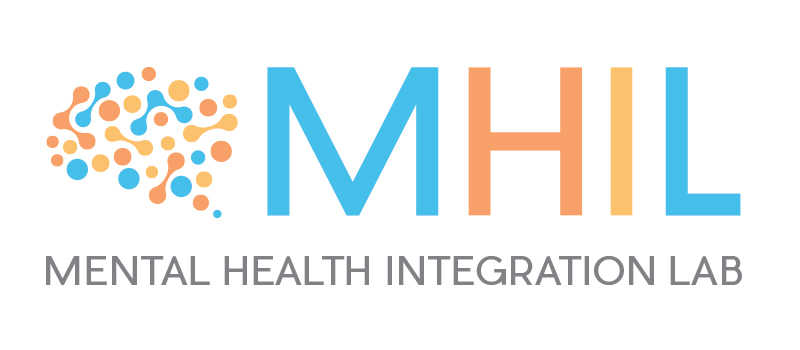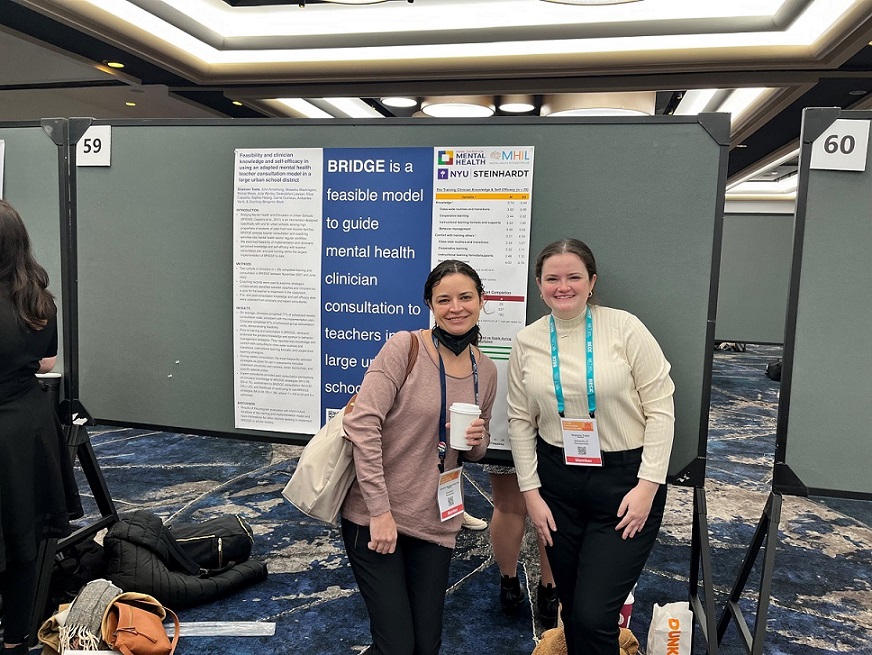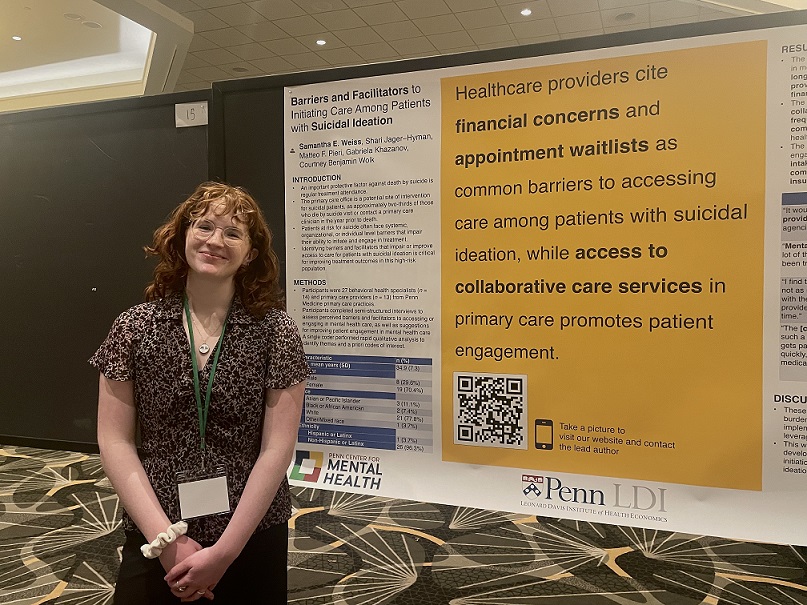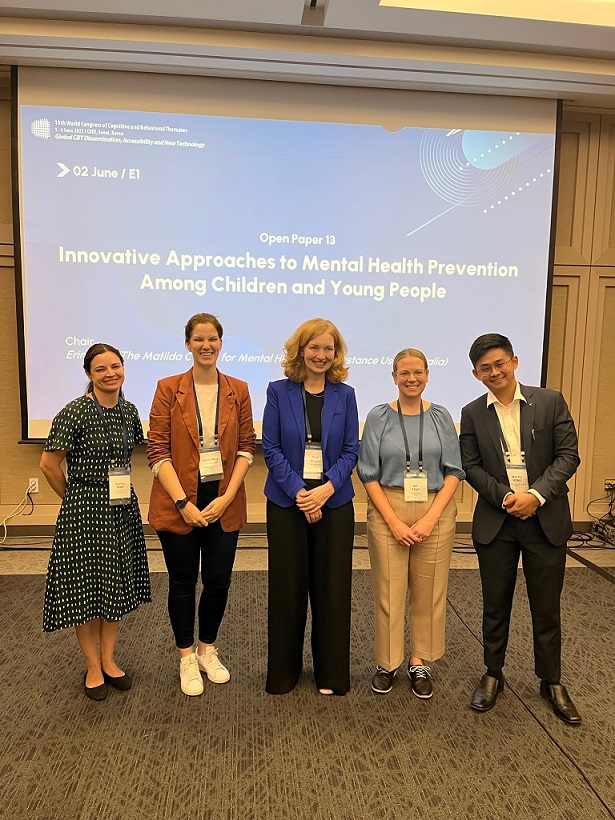The need for mental health treatment far surpasses the availability of specialty mental health care. There is also growing recognition that physical and mental health are highly interconnected. As the demand for integrating mental health services into schools, primary care clinics, and other health and human service settings continues to grow, there is tremendous opportunity to develop scalable, generalizable solutions to advance the integration of mental health care into service sectors that historically have not provided such services. Leveraging methods and expertise from the fields of implementation science, team science, and quality improvement, the Mental Health Integration Lab partners with researchers, organizations, and clinical stakeholders to support the implementation and evaluation of evidence-based mental health screening, prevention, and intervention practices in non-specialty mental health settings. We develop and evaluate novel strategies to support implementation and integration of the most effective mental health treatments in the myriad of settings that serve individuals with unmet mental health needs to advance the quality, integration, and sustainability of accessible mental health care.
Mental Health Integration Lab

Dr. Wolk, Director of the Mental Health Integration Lab, is a licensed clinical psychologist and implementation scientist. She is an expert in the common overarching barriers and facilitators to implementing mental health interventions in non-specialty mental health settings and in the design and evaluation of actionable strategies for fostering integration. Dr. Wolk has extensive research and clinical consultation experiences in non-specialty mental health settings that inform her work—most notably in schools and primary care. Dr. Wolk has a keen understanding of the unique contextual considerations and implementation challenges found in these settings and the most promising implementation strategies to support the use of evidence-based practices in these contexts.
Dr. Wolk serves as the PI or Co-I on numerous federally funded research projects, including those conducted in integrated primary care, school mental health, and community settings. She and her team:
- Conduct innovative research focused on better integrating mental health care in systems that serve children and adults with unmet mental health needs
- Collaborate with multi-disciplinary researchers on their mental health integration projects and provide consultation in implementation science methods and evaluation
- Consult with payer, health system, clinic, and community stakeholders who are interested in implementing or better integrating mental health services in their settings
- Train and support clinicians and clinicians-in-training to provide evidence-based clinical services in integrated care settings and in improving collaboration and team functioning.
TeamSTEPPS for School-Based Mental Health
The growing body of literature on team science has been used to enhance team functioning in medical settings but has not yet been widely applied to mental health teams. One particular approach, Team Strategies and Tools to Enhance Performance and Patient Safety (TeamSTEPPS), has been widely disseminated in health care settings and represents a promising strategy for addressing communication and climate in school mental health teams and other mental health and human service settings. TeamSTEPPS is designed to build competencies in leadership, situation monitoring, mutual support, and communication and has been associated with improvements in teamwork and communication as well as in patient outcomes. In this AHRQ-funded project (5R18HS026862-02), we are taking a participatory approach to collaboratively identify solutions to challenges in collocated school-based mental health services based upon the feedback of stakeholders and use TeamSTEPPS to support mental health team-school collaboration.
Penn Integrated Care Program Evaluation
Depression treatment in primary care improves access to care, is cost-effective, and improves quality of care. The Collaborative Care Model (CoCM) has a robust research base and is the leading model for integrating mental health treatments in primary care, most notably for depression and anxiety. The University of Pennsylvania Health System (Penn Medicine), a large and diverse health system, adapted and implemented the model to meet health care system needs, creating Penn Integrated Care (PIC). Key elements include a team composed of a primary care provider, mental health provider, and supporting psychiatrist, use of evidence-based practices and measurement-based care, and a registry to track patients. A novel element of PIC is the addition of a telephonic assessment, triage, and referral management center to the CoCM model as usual. Our team helps support research and program evaluation activities for PIC.
BRIDGE
BRIDGE, developed by Dr. Elise Cappella of NYU and colleagues, integrates MyTeachingPartner (MTP), a nationally-recognized teacher consultation program, with Links to Learning (L2L), a mental health model co-designed with practitioners in urban, low-income communities (Atkins et al., 2015; Cappella et al., 2008). Teachers are supported by mental health clinicians in implementing daily strategies to support mental health and academic achievement for students with disruptive behavior disorders in classrooms. Our team is partnering with Community Behavioral Health to bring BRIDGE to the School District of Philadelphia.
Engaging Suicidal Patients in Mental Health Treatment
Mental health screening and referral are common in primary care, yet only half of patients referred to mental health treatment attend an initial visit, even when referred to a provider within the same practice. Strategies such as reminder calls or texts, motivational and informational interventions, and case management have demonstrated small to moderate effects. Even when implemented, 40% of patients do not initiate treatment. More effective methods for increasing treatment initiation are needed. Behavioral science theories and methods hold promise for improving patient engagement in mental health care. Leveraging the Penn ALACRITY Center for transforming mental health delivery through behavioral economics and implementation science, we will develop, pilot, and optimize strategies to increase treatment initiation for suicidal persons and accelerate the pace at which promising strategies enter routine care. Dr. Wolk is an MPI of this NIMH funded R21 (1R21MH123851-01A1) with co-MPI Dr. Shari Jager-Hyman.
Coping First Aid
In response to the COVID-19 pandemic, we developed and implemented the Penn Medicine Coping First Aid program. Coping First Aid aims to implement an accessible and supportive tele-mental healthcare service to healthcare workers, faculty, staff, and trainees at Penn affected by COVID-19 . One-on-one coaching services are provided by lay health coaches trained to listen, offer support, promote coping, provide resources, and link to higher levels of care with supervision from a clinician. The program is grounded in principles of Psychological First Aid (PFA) adapted for COVID-19. The Coping First Aid service is available to Penn Medicine employees through Penn Cobalt (https://www.penncobalt.com/). Dr. Wolk Co-Directs the Coping First Aid program with Dr. Emily Becker-Haimes.
Our Team
Samantha Rushworth, PhD, Postdoctoral Fellow
Shannon Testa, Clinical Research Coordinator
Biiftu Duresso, Clinical Research Coordinator
Emilie Famiglio, Clinical Research Coordinator
Aparajita Kuriyan, PhD
Publications & Press
Khazanov, G.K., Jager-Hyman, S., Harrison, J., Candon, M., Buttenheim, A., Pieri, M., Oslin, D. W., Wolk, C.B.: Leveraging behavioral economics and implementation science to engage patients at risk for suicide in mental health treatment: A pilot study protocol. Pilot and Feasibility Studies 8(181), August 2022. View article.
Wolk, C.B., Arnold, K.A., & Proctor, E.K.: Implementing evidence-based practices in non-specialty mental health settings. Families, Systems, & Health January 2022.
Khazanov, G.K., Jager-Hyman, S., Harrison, J., Candon, M., Buttenheim, A., Pieri, M., Oslin, D. W., Wolk, C.B.: Leveraging behavioral economics and implementation science to engage patients at risk for suicide in mental health treatment: A pilot study protocol. Pilot and Feasibility Studies 8(181), August 2022. View on PubMed.gov
Wolk, C.B., Last, B.S., Livesey, C., Oquendo, M.A., Press, M.J., Mandell, D.S., Ingram, E., Futterer, A.C., Kinkler, G.P., & Oslin, D.W.: Addressing common challenges in the implementation of Collaborative Care for mental health: The Penn Integrated Care program. Annals of Family Medicine 19: 148-156, March 2021. View on PubMed.gov
Kuriyan, A., Kinkler, G., Cidav, Z., Kang-Yi, C., Eiraldi, R., Salas, E., Wolk, C.B.: TeamSTEPPS to improve collaboration in school mental health: Protocol for a mixed-method hybrid effectiveness-implementation study JMIR Research Protocols 10(2): e26567, February 2021. View on PubMed.gov
Price, J., Becker-Haimes, E., & Wolk, C.B.: Matched Emotional Supports in Healthcare (MESH) Framework: A stepped care model for healthcare workers. Families, Systems, & Health 2021. View on PubMed.gov
Song, A.A., Oslin, D., & Wolk, C.B.: Characteristics of patients who attended behavioral health services after primary care referral with referral management support. Psychiatric Services June 2021. View on PubMed.gov
McGuier, E.A., Kolko, D.J., Klem, M.L., Feldman, J., Kinkler, G., Diabes, M.A., Weingart, L.R., & Wolk, C.B.: Team functioning and implementation of innovations in healthcare and human service settings: A systematic review protocol. Systematic Reviews 10(189), June 2021. View on PubMed.gov
Wolk, C. B., Alter, C. L., Kishton, R., Rado, J., Atlas, J. A., Press, M. J., Jordan, N., Grant, M., Livesey, C., Rosenthal, L. J., & Smith, J. D. (2021). Improving Payment for Collaborative Mental Health Care in Primary Care. Medical Care, 59(4), 324–326. View on PubMed.gov
Wolk, C. B., Stewart, R. E., Cronholm, P., Eiraldi, R., Salas, E., & Mandell, D. S. (2019). Adapting TeamSTEPPS for school mental health teams: a pilot study. Pilot and Feasibility Studies, 5(1). View on PubMed.gov
Wolk, C. B., Stewart, R. E., Eiraldi, R., Cronholm, P., Salas, E., & Mandell, D. S. (2019). The implementation of a team training intervention for school mental health: Lessons learned. Psychotherapy, 56(1), 83–90. View on PubMed.gov
Wolk, C. B., & Beidas, R. S. (2018). The Intersection of Implementation Science and Behavioral Health: An Introduction to the Special Issue. Behavior Therapy, 49(4), 477–480. View on PubMed.gov
Wolk, C.B., Van Pelt, A. E., Jager-Hyman, S., Ahmedani, B. K., Zeber, J. E., Fein, J. A., Brown, G. K., Gregor, C. A., Lieberman, A., & Beidas, R. S. (2018). Stakeholder Perspectives on Implementing a Firearm Safety Intervention in Pediatric Primary Care as a Universal Suicide Prevention Strategy. JAMA Network Open, 1(7), e185309. View on PubMed.gov
Wolk, C. B., Kendall, P. C., & Beidas, R. S. (2015b). Cognitive-Behavioral Therapy for Child Anxiety Confers Long-Term Protection From Suicidality. Journal of the American Academy of Child & Adolescent Psychiatry, 54(3), 175–179. View on PubMed.gov




